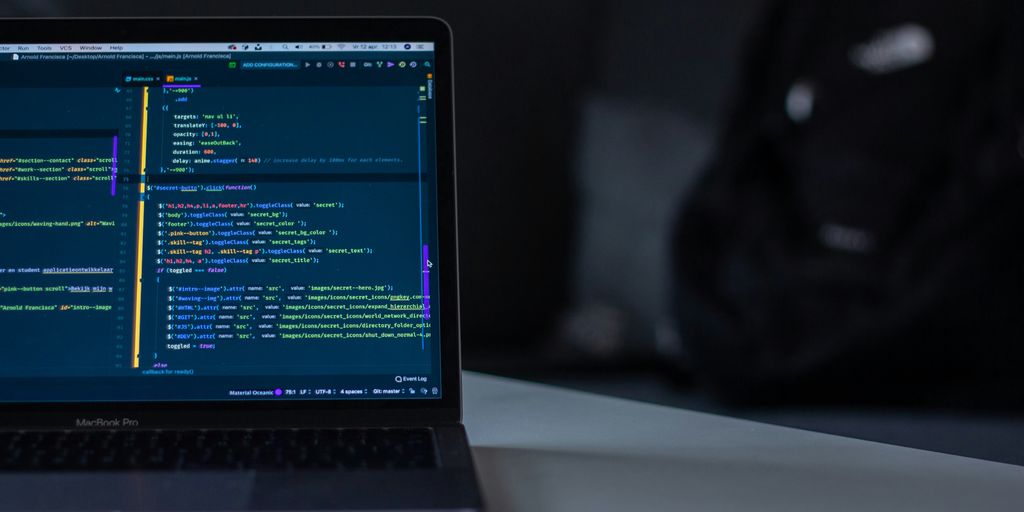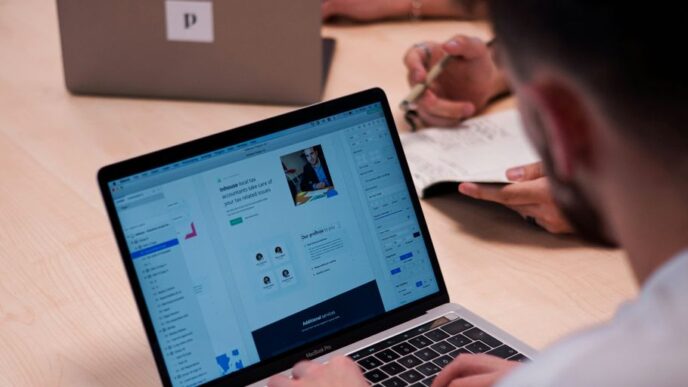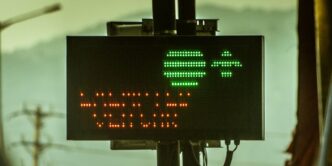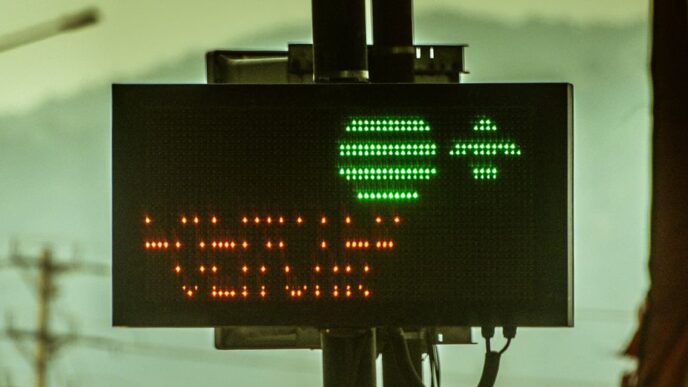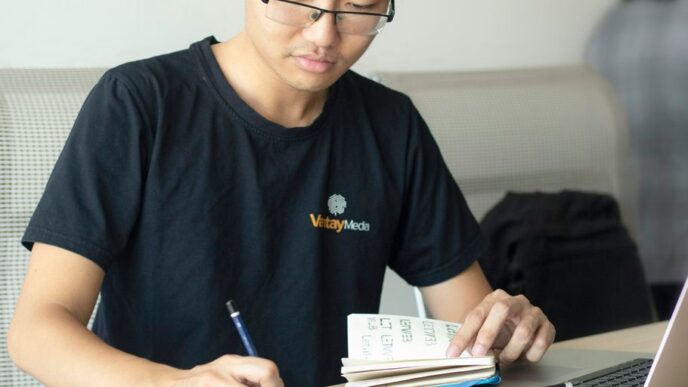Thinking about getting good at competitive programming, especially on a platform like CodeChef? It can seem like a big hill to climb at first, but honestly, it’s totally doable. This guide breaks down how to get started and keep improving. We’ll look at the basics, how to practice smart, and even how to connect what you learn in contests to actual coding jobs. So, let’s figure out how to make CodeChef work for you.
Key Takeaways
- Build a solid base in algorithms and data structures; CodeChef’s practice section is great for this.
- Regularly join CodeChef contests and learn from editorials and other coders’ solutions.
- Pick a programming language you know well and get comfortable with CodeChef’s tools.
- Connect with other programmers online to share knowledge and get help.
- Start with easier problems on CodeChef and gradually move to harder ones, learning new problem-solving methods along the way.
Mastering Algorithms and Data Structures on CodeChef
To really get good at competitive programming, you’ve got to know your algorithms and data structures inside and out. It’s not just about memorizing them; it’s about understanding how they work and when to use them. Think of it like having a toolbox – the more tools you have, and the better you know how to use them, the more problems you can fix.
Building a Strong Algorithmic Foundation
Start with the basics. Things like sorting algorithms (bubble sort, merge sort, quicksort) and searching algorithms (binary search) are your bread and butter. You should be able to implement them yourself and know their time complexity. Then, move on to more complex stuff like dynamic programming, graph algorithms (like Dijkstra’s or BFS/DFS), and string algorithms. It takes time, but understanding these is key to solving harder problems. You can find a good roadmap for this on CodeChef’s practice section.
Essential Data Structures for Competitive Programming
Beyond arrays, you’ll need to get comfortable with structures like stacks, queues, priority queues, sets, and maps. These are used all the time to make solutions more efficient. For example, a priority queue is great for problems where you always need the smallest or largest element quickly. Knowing when to use a hash map versus a balanced binary search tree (like std::map in C++ or TreeMap in Java) can make the difference between a solution that times out and one that passes.
Leveraging CodeChef’s Practice Archives
CodeChef has a massive collection of problems, and that’s where you’ll really hone your skills. Don’t just jump into the hardest ones. Start with problems tagged with algorithms or data structures you’re currently learning. If you’re studying dynamic programming, filter for DP problems. Try to solve a problem multiple ways if you can. If you get stuck, look at the editorial or other people’s solutions, but make sure you understand why their solution works before moving on.
The Art of Consistent Practice on CodeChef

Consistent practice is really the name of the game when it comes to getting good at competitive programming. It’s not about cramming for a contest; it’s about building habits that stick. Think of it like training for a sport – you wouldn’t just show up on game day, right? You put in the work regularly.
Participating in Monthly CodeChef Contests
CodeChef offers several contests each month, like the Long Challenge, Cook-Off, and Lunchtime. It’s a good idea to try and participate in as many as you can. Even if you don’t solve many problems, just being in the contest environment helps you get used to the pressure and the time limits. It’s a great way to see where you stand and what areas you need to work on. A B.Tech student shared their journey, dedicating 1-2 hours daily to practice alongside their studies, and found it really paid off their experience.
Learning from Mistakes and Editorials
This is super important. When a contest ends, don’t just forget about it. Go back and look at the problems you couldn’t solve. CodeChef provides editorials, which are basically explanations of how to solve the problems. Read them carefully, try to understand the logic, and then code the solution yourself. Getting a problem accepted after struggling with it is a really good feeling and a solid learning moment.
Analyzing Top Coder Solutions
After you’ve tried to solve a problem and maybe even looked at the editorial, check out how other people solved it. Especially look at the solutions from people who ranked higher than you. You’ll often find clever tricks or more efficient ways to write the code. It’s like getting a peek into the minds of experienced programmers. You can learn a lot about different coding styles and optimization techniques this way.
Choosing Your Language and Tools for CodeChef
When you’re getting started with competitive programming on CodeChef, picking the right programming language and tools can make a big difference. It’s not just about knowing how to code; it’s about coding efficiently and effectively within the contest environment. Many people start with C++, Java, or Python because they are widely used and have good support in the competitive programming scene. Each language has its own strengths and weaknesses, so it’s worth considering what fits your style and the problem types you’ll encounter.
Proficiency in C++, Java, or Python
- C++: Often considered the go-to language for competitive programming due to its speed and extensive standard library (STL). It gives you fine-grained control over memory and operations, which is a big plus when every millisecond counts. If you’re aiming for peak performance, C++ is a strong contender.
- Java: While generally a bit slower than C++, Java is still a popular choice. Its object-oriented nature can be helpful, and it has excellent built-in support for large numbers (BigIntegers), which can simplify certain problems. The Java ecosystem is also quite robust.
- Python: Python is known for its readability and ease of use, making it great for beginners. It’s fantastic for rapid prototyping and can handle complex data structures with less code. However, its slower execution speed can sometimes be a hurdle for problems with very tight time limits. You can start your journey with Python 3 programming using online tutorials to learn Python 3 programming.
Understanding Time and Memory Constraints
CodeChef, like other platforms, imposes limits on how long your program can run (time limit) and how much memory it can use (memory limit). Understanding these constraints is key to selecting the right algorithms and data structures. For instance, a problem with a 1-second time limit might require an O(N log N) or O(N) solution, whereas an O(N^2) solution might time out. Similarly, if the memory limit is tight, you’ll need to be mindful of how much data your program stores. Analyzing the input size and the given time limit is usually the first step before you even start coding.
Utilizing CodeChef’s IDE and Features
CodeChef provides an online IDE that allows you to write and test your code directly on the platform. This can be really convenient, especially when you’re just starting out or participating in contests. It saves you the hassle of setting up a local development environment. Beyond the IDE, CodeChef offers features like a vast problem archive for practice, detailed editorials explaining solutions, and discussion forums where you can ask questions and learn from others. Make sure to explore these resources; they are designed to help you improve.
Engaging with the Competitive Programming Community
Being part of the competitive programming scene isn’t just about solving problems alone in your room. It’s a whole community thing, and honestly, it makes the whole experience way better. You get to see how other people tackle the same problems you’re stuck on, and that’s a huge help. Plus, it’s a good way to stay motivated when you see others pushing their limits.
Joining Online Forums and Discussion Groups
There are tons of places online where programmers hang out and talk shop. Websites like Reddit have active communities, and platforms like Codeforces themselves have forums. It’s a good spot to ask questions when you’re really stuck on a problem or just want to chat about a new algorithm you learned. Don’t be afraid to jump in and ask questions; most people are happy to help. It’s how you learn new tricks and get different perspectives on problem-solving. You can find discussions on everything from basic syntax to advanced dynamic programming techniques.
Learning from Peer Submissions
One of the best ways to improve is by looking at how other people solve problems. After a contest ends, CodeChef usually has editorials, but also, you can often see the solutions submitted by others. It’s like getting a peek into different brains. You might find a much cleaner or faster way to do something than you thought of. It’s not about copying, but about understanding different approaches. You can compare your solution to theirs and see where you can improve. It’s a really practical way to learn new coding styles and algorithms.
Finding Mentors and Study Partners
Sometimes, having someone to work with makes a big difference. Finding a study partner or even a mentor can really speed up your learning. You can bounce ideas off each other, motivate each other during tough contests, and explain concepts to one another, which actually helps solidify your own knowledge. Look for people who are at a similar level or slightly ahead of you. You can often find these people through the forums or by connecting with others you meet in contests. Working together can make the whole competitive programming journey less lonely and more productive. It’s a great way to prepare for bigger challenges and even get ready for technical interviews.
Strategies for Success in CodeChef Challenges
Getting started on CodeChef can feel a bit overwhelming, but with a plan, you can really make progress. It’s all about building up your skills step-by-step.
Starting with Foundational Problems
Don’t jump straight into the really tough stuff. It’s way better to begin with problems that have been solved by a lot of people. This helps you get a feel for how problems are structured and what kind of solutions are expected. Think of it like learning the alphabet before writing a novel. You want to build that basic confidence and understanding. CodeChef has a huge archive, so finding these easier problems is pretty straightforward. Just sort by submission count, and you’ll find plenty to get you going. This is a great way to start your competitive programming journey.
Tackling Different Contest Formats
CodeChef offers a few different types of contests, like the Long Challenge, Cook-Off, and Lunchtime. The Long Challenge is great for really digging into a problem over a longer period, which is good for learning complex algorithms. Cook-Offs and Lunchtime contests are shorter and faster-paced, which helps you get better at thinking quickly under pressure and implementing solutions efficiently. Trying out all of them gives you a well-rounded experience.
Developing Problem-Solving Techniques
When you hit a problem, the first thing to do is really understand the constraints. What are the limits on the input size? How much time does the judge give you? This information often tells you what kind of algorithm you need. If the input is small, a slower algorithm might work. If it’s huge, you’ll need something much faster. Always analyze the constraints before you start coding. Also, don’t be afraid to look at editorials or solutions from top coders after you’ve tried your best. You can learn a lot about different approaches and cleaner ways to write code. It’s a continuous learning process, and seeing how others solve problems is a big part of that. You can find many helpful resources on CodeChef’s practice section.
Bridging Competitive Programming and Real-World Development
So, you’ve spent a good chunk of time on CodeChef, getting your algorithms sharp and your problem-solving muscles flexed. That’s awesome. But what happens when you step away from the contest environment and into, say, building an actual application? It’s not quite the same, is it?
The skills you gain from competitive programming are super transferable, but they need a bit of translation for real-world software development. Think of it like learning a new language; you know the grammar and vocabulary, but you still need to practice conversation.
Applying Learned Skills to Projects
This is where the rubber meets the road. You know how to optimize a search algorithm for speed? Great! Now, think about how that applies to making a website load faster or a database query run more efficiently. It’s about taking that competitive edge and applying it to practical problems. Don’t just solve problems on a platform; try to integrate those efficient solutions into personal projects or even small scripts you use daily. It’s a fantastic way to see the direct impact of your competitive programming efforts.
Focusing on Code Readability
In contests, the main goal is often just to get the correct output within the time limit. Who cares if the code looks like a tangled mess, right? Well, in the real world, that tangled mess is a big problem. Other people (or even future you) need to understand what’s going on. So, start practicing writing cleaner code, even on CodeChef. Use meaningful variable names, break down complex logic into smaller functions, and add comments where necessary. It might feel slower at first, but it’s a habit that pays off big time.
Exploring Software Design Patterns
Competitive programming usually throws you a single, well-defined problem. Real-world software is often a collection of interconnected parts that need to work together smoothly. This is where design patterns come in. Things like the Factory pattern for creating objects or the Observer pattern for handling updates might seem like overkill for a contest problem, but they are the building blocks of robust applications. Learning a few common ones can make a huge difference in how you structure larger projects.
Keep Coding, Keep Growing
So, you’ve made it through the guide on tackling CodeChef and getting better at competitive programming. It’s not always easy, right? Sometimes you’ll get stuck on a problem for ages, or maybe a contest just doesn’t go your way. That’s totally normal. The big thing is to just keep showing up. Practice regularly, look at how others solve problems, and don’t be afraid to learn new tricks. Remember, this journey is about getting smarter with your code and building solid problem-solving skills. Mix what you learn here with actual coding projects, and you’ll be well on your way to becoming a really capable programmer. Just keep at it, and you’ll see yourself improve.
Frequently Asked Questions
What are algorithms and data structures, and why do I need them for CodeChef?
Think of algorithms like recipes for solving problems, and data structures as special ways to organize information. Knowing these helps you write code that works super fast, especially for tricky problems on CodeChef.
How can practicing on CodeChef help me improve?
CodeChef has tons of problems you can practice. It’s like a big playground for coders! Solving these problems, especially the ones you find tricky, is the best way to get better. Don’t forget to check the solutions after you try, so you can learn new tricks.
Which programming language should I use for CodeChef?
It’s smart to pick one language like C++, Java, or Python and become really good at it. This way, you know all its cool features and can write code quickly. CodeChef lets you use these, so just stick with what you like best!
What are time and memory limits, and why are they important?
Imagine you’re in a race. You need to solve problems before the time runs out! CodeChef tells you how much time you have and how much computer memory your code can use. Understanding these limits helps you write speedy and efficient code.
How can I connect with other competitive programmers?
You can join online groups or forums where other coders hang out. It’s like having a study buddy! You can ask questions, share what you’ve learned, and even get help from more experienced programmers. It makes learning more fun!
What’s the best way to approach problems and contests on CodeChef?
Start with easier problems to build your confidence, like learning to walk before you run. Then, try different types of contests CodeChef offers. The most important thing is to keep trying, learn from your mistakes, and not give up!


